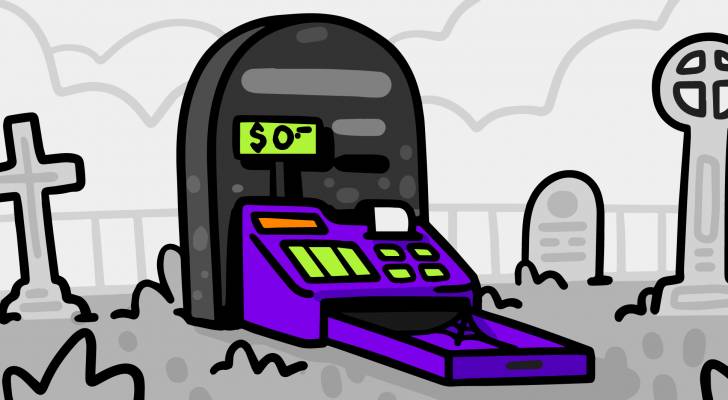
Maybe you’ve heard the saying “shrouds have no pockets?” It means you can’t take your money and possessions to the grave. It’s a dark but real concept US businessman Bill Perkins, author of Die With Zero, is a big proponent of.
The idea is that once you have saved enough to fund your retirement and give back to your family or even charities, then you should focus on memorable life experiences. Ultimately, having spent your money on experiences, you’ll leave no money behind.
Leaving no inheritance may seem odd, but it is a trend that is growing. Beyond gifting your kids money for a house, it may be a smart way to transfer wealth from one generation to another, while avoiding potential taxes on estate assets.
“I would say personally, in my business, it’s picked up over the last three to four years, during and post the lockdown,” says Treena Nault, CFP and financial advisor at IG Wealth Management.
Giving the younger generation a ‘hand up’
Back in 2021, a report published by IG Wealth Management found that the pandemic gave families time to reflect on their finances. The report suggested that lockdowns gave some people the opportunity to save more by cutting high-cost consumption spending such as travel and entertainment. With these savings, IG’s report suggested that families could be ready to help the younger generation with education, housing and starting new businesses.
“I think the higher priority is giving a leg up to this younger generation that is living through a very high cost of living,” says Nault “…people say that they don’t want to give them a hand out, they want to give them a hand up.”
Longer life, more expenses
A longer average life expectancy is also complicating people’s desire to give more to their children while they are still alive.
“As life expectancy continues to rise, the average length of retirement rises, and therefore, so does the cost of retirement,” Petrera added.
In a 2022 study released by Edward Jones, respondents said the ideal length of retirement is now 27 years.
“That’s three decades to plan and save for.”
“A majority of respondents noted retirement is a new chapter in life rather than a time for rest and relaxation. Maintaining an active lifestyle comes at a cost, which again, must be planned and saved for appropriately,” Petrera said.
That being said, a 2025 study from BMO found that 76% of Canadians are worried they will not have enough money during their retirement, so there is work to be done in terms of retirement preparation.
Gifting or taking care of yourself
Trying to help children in tough economic times, while making sure one’s needs are met, is a delicate balance for parents.
“They have to plan it versus being very spontaneous about it,” said Nault.
Nault says that if a client calls her to express the desire to give a child $100,000, her immediate response is to pause and reflect.
“I’m not saying the client shouldn’t do that,” Nault elaborated, “But let’s actually delve into the client’s retirement and estate plan and see how this fits in because there are other considerations.”
Nault advises parents to be fair and not give one child more than the other, all in hopes of avoiding familial feuds.
Is it better to die with zero?
So is it better for a person to die with zero and pass assets to children as gifts while they’re alive?
“Well, that’s pretty hard to plan,” said Nault.
Instead, the financial advisor offers advice she gives to her clients.
“If you’re gonna die with assets, die with a tax-free savings account fully topped up because the tax-free savings account can go to your spouse or to your children, or anybody else, quite frankly, tax free,” adds Nault.
Petrera too expressed the complicity of this decision.
“Most Canadians cannot predict how long they’re going to live. If you’re planning to die with no money, you run the risk of outliving your money,” Petrera said.
“On the other hand, we also see Canadians that consider dying with too much money as a risk too.”
At the end of the day, it’s a personal decision and each situation is different.
“For some people, that is absolutely their goal (dying with zero),” said Petrera.
“But others might want to plan to leave their legacy at death, such as a gift to a loved one or a donation to charity. And others might want to leave enough to repay debts, funeral costs, or other end-of-life expenses.”
Sources
1. IG Private Wealth Management: Family Matters (2021)
2. Edward Jones: Edward Jones study: Retirement is evolving, and Canadians need to adjust to keep pace (July 6, 2022)
3. BMO Financial Group: BMO Retirement Survey: Over Three Quarters of Canadians Worry They Will Not Have Enough Retirement Savings Amid Inflation (Feb 12, 2025)
This article Should you aim to die with zero? More Canadians gifting inheritance early and enjoying money noworiginally appeared on Money.ca
This article provides information only and should not be construed as advice. It is provided without warranty of any kind.